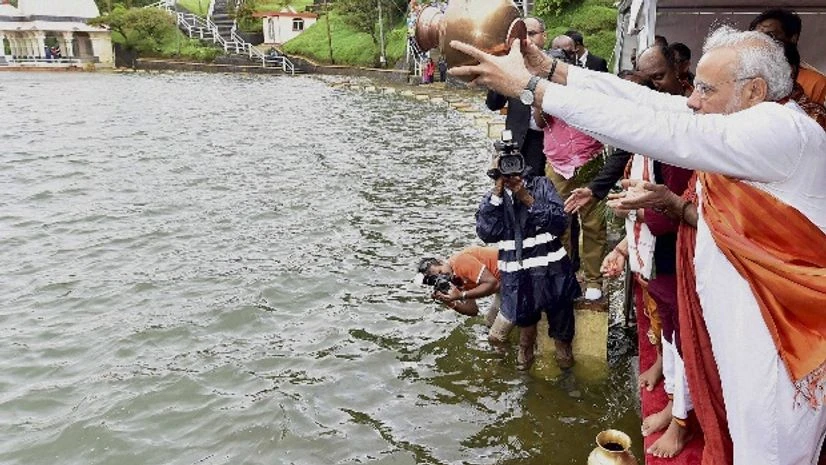After a long hiatus, the governments of India and Mauritius agreed on Thursday to resume talks for reviewing their Double Taxation Avoidance Convention (DTAC), even as Prime Minister Narendra Modi said he would not allow it to be misused for tax evasion.
In his address to the National Assembly of that country, Modi said he'd raised the issue with Mauritian counterpart Aneerood Jugnauth. “We understand the importance of the offshore banking sector for your economy. We are conscious of its dependence on India. We will work together for our shared objective to avoid the abuse of our DTAC. Over the past few years, we have discussed its revision and we have agreed to continue this discussion,” Modi, on a two-day visit there, said on Thursday.
He said the aim was to give the treaty more teeth and expedite the process of reviewing it. “But, I also assure you that we will do nothing to harm this vibrant sector of one of our closest strategic partners. It has been a great privilege to be a development partner for Mauritius. We will always be ready to do more, in accordance with your wishes,” he added.
More From This Section
Modi said he was grateful that Mauritius had agreed to a Tax Information Exchange Agreement, which incorporates provisions on assistance in the collection of taxes.
The Mauritian government hailed the decision taken by Modi's government to postpone GAAR (General Anti-Avoidance Rules) till 2017, a big bone of contention for investors investing through the shell companies based there. If GAAR comes into effect, such investors will not be able to enjoy tax benefits.
"I have requested PM Modi to give his full support on the DTAC, as it is of prime importance for our global business sector,” Jugnauth said at a press conference there.
Recently, Finance Minister Arun Jaitley had said Mauritius had not responded to some proposals made by India on the DTAC revision, to do away with the issue of round-tripping of investment and to prevent money laundering.
The India-Mauritius Joint Working Group, set up in 2006 to address issues concerning the operation of the DTAC, has met 10 times. The previous meeting was in November 2013. In that round, both sides had agreed to model the new DTAC similar to what India has with Singapore. However, Mauritius felt the ‘limitation of benefits’ (LoB) clause should be unlike what India has with Singapore.
The LoB clause in the India-Singapore treaty requires investors coming into India through Singapore to incur minimum expenditure of $200,000 in the Southeast Asian nation and have a track record of two years to get treaty benefits.
The India-Mauritius DTAC was signed in 1982. Total foreign direct investment (FDI) from Mauritius to India stood at $84.41 billion from April 2000 to December 2014, according to official data.
According to Rajesh Gandhi, partner, Deloitte Haskins and Sells, “It is all the more important for India to have the DTAC review go through with Mauritius, now that it has postponed implementation of GAAR. This will bring in more clarity for investors looking for a long-term horizon. Besides, it will also put a check on the type of investments entering India.”
Mauritius also reiterated its keenness to expand the Preferential Trade Agreement signed in August 2006 into a full India-Mauritius Comprehensive Economic Partnership Agreement, which India had refused to negotiate till Mauritius agreef to revisit the DTAC up to India’s satisfaction.

)
